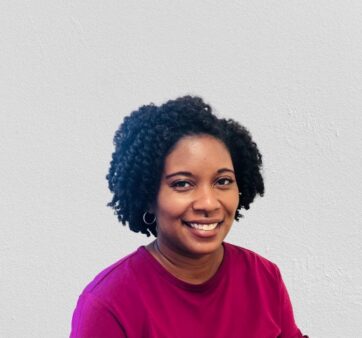Elevate Your Career in Brain Injury by Becoming a Certified Brain Injury Specialist
Join a Community of Experts and Lifelong Learners Making a Difference
Start Your ApplicationJoin a community of experts and lifelong learners dedicated to improving outcomes for individuals living with brain injury through specialized certification programs offered by the Brain Injury Association of America’s Academy of Certified Brain Injury Specialists (ACBIS).
Brain injury is a complex chronic health condition that requires ongoing management and care. Many professionals working with patients with a brain injury, such as occupational therapists, physical therapists, and speech language pathologists, have basic knowledge of brain injury, but they haven’t taken that next step to earn a certification which validates their interdisciplinary skills and knowledge.
By becoming a Certified Brain Injury Specialist, you can demonstrate your commitment to delivering high-quality care. Our specialized certification programs are designed to empower professionals with the knowledge and skills needed to excel in treating the brain injury community.
Who is eligible to become a Certified Brain Injury Specialist?
Are you ready to take your career in brain injury to the next level? Here's how you can qualify.
Experience
500 hours of currently verifiable direct contact experience with individuals who have brain injury
Supervision
Experience must have included formal supervision or have been conducted while operating under a professional license.
Education
Applicants must hold a high school diploma or equivalent to be eligible for CBIS certification.
Why become a Certified Brain Injury Specialist?
See the Big Picture: Brain injury is a complex field and for specialists like occupational therapists, physical therapists, and speech language pathologists, your knowledge of brain injury can be limited. CBIS certification instills a well-rounded base of knowledge about the many aspects of a patient’s recovery journey.
Get Recognition: CBIS certification is widely recognized and respected within the brain injury community, proving that you are committed to being a leader in the field. Many CBIS say that they continue to reference their initial training and the skills they developed throughout the rest of their career.
Keep Learning: As a CBIS, you are joining a community of experts and lifelong learners dedicated to staying updated on the latest advancements and best practices in brain injury rehabilitation through ongoing education and collaboration.
Advance your Career: CBIS certification can open doors to new career opportunities and advancement, demonstrating your expertise and commitment to excellence in treating individuals with brain injury.
Our Certification Programs
Certified Brain Injury Specialist (CBIS): Becoming a CBIS is an important step in the professional development of anyone working in the field of brain injury. It demonstrates a commitment to learning about brain injury rehabilitation and maintaining that knowledge through continuing education. Certification is open to all professionals delivering services specific to brain injury. Official training is provided by Certified Brain Injury Specialist Trainers, but self-study is also an option.
Certified Brain Injury Specialist Trainer (CBIST): CBISTs are approved to provide official training to CBIS candidates.
Provisional Certified Brain Injury Specialist (PCBIS): PCBIS is a certification option for graduate students, providing in-depth training for those intending to work with individuals who have sustained a brain injury. PCBIS certificants can apply to transition to full CBIS certification upon meeting eligibility requirements.
Certified Brain Injury Specialist – Advanced Practice (CBIS/T-AP): CBIS/T-AP is an advanced certification for rehabilitation professionals from all disciplines actively involved in providing neurorehabilitation interventions. CBIS/T-AP Specialists demonstrate expertise in understanding and applying cognitive rehabilitation principles, teaching and supervising others in these services, collaborating with patients, families, and rehab teams, and assessing, planning, implementing, coordinating, monitoring, and evaluating care to meet an individual’s brain injury rehabilitation and health needs.
Download the CBIS and CBIST Candidate Handbook to learn more about the entire CBIS/T certification process!
Sign up to learn more about our professional education programs, and we’ll send you the CBIS and CBIST Candidate Handbook, which has more information about the program and detailed instructions on how you can become a CBIS or a CBIST. You’ll also be the first to know of new educational opportunities and webinars from the Brain Injury Association of America and our ACBIS programs.
In addition to the candidate handbook, we will also send you:
- Our most popular webinars and other professional education opportunities
- Our monthly newsletter and each issue of The Challenge!, a magazine for the brain injury community.
Learn more about the Academy of Certified Brain Injury Specialists
From Our Community
 Richelle Walker, OTD, MOT, OTR/L, CBIS: “Occupational therapists use a holistic approach to treatment by looking at how deficits affect the whole person and their ability to carry out meaningful occupations within different contexts. Having a CBIS certification is another way that I can address the whole person. Through the initial certification, I not only learned key approaches to working with such individuals, but I also learned how to enhance the education that I provide to patients and families about this diagnosis.”
Richelle Walker, OTD, MOT, OTR/L, CBIS: “Occupational therapists use a holistic approach to treatment by looking at how deficits affect the whole person and their ability to carry out meaningful occupations within different contexts. Having a CBIS certification is another way that I can address the whole person. Through the initial certification, I not only learned key approaches to working with such individuals, but I also learned how to enhance the education that I provide to patients and families about this diagnosis.”
 Sheldon Herring, Ph.D., CBIST: “Brain injury rehabilitation can be one of the most complex fields within medicine. As such we are all always both student and teacher. The CBIST mindset is one of translating knowledge into application and facilitates being open to learning from and with the persons we serve. The practice of evidence-based medicine includes not only research-based interventions but also drawing on the experience of the clinician with the input of the person served, all of which are built on the knowledge reflected in being a Certified Brain Injury Specialist.”
Sheldon Herring, Ph.D., CBIST: “Brain injury rehabilitation can be one of the most complex fields within medicine. As such we are all always both student and teacher. The CBIST mindset is one of translating knowledge into application and facilitates being open to learning from and with the persons we serve. The practice of evidence-based medicine includes not only research-based interventions but also drawing on the experience of the clinician with the input of the person served, all of which are built on the knowledge reflected in being a Certified Brain Injury Specialist.”
 Kim Reed, CTRS, CBIS: “During the time of my career as a recreational therapist, I was proud to have the CBIS credential as I felt that it validated that I understood brain injury and that I was committed to continuing to expand my knowledge in that area. It ensured that I would strive to provide the best therapy to our persons served and their families. In my current role as Training and Development leader, I continue to be extremely proud of my CBIS status as I hope it shows our new and existing staff that I am still committed to the field of brain injury and can serve as a resource to them as they are now the ones providing individual and group therapies.”
Kim Reed, CTRS, CBIS: “During the time of my career as a recreational therapist, I was proud to have the CBIS credential as I felt that it validated that I understood brain injury and that I was committed to continuing to expand my knowledge in that area. It ensured that I would strive to provide the best therapy to our persons served and their families. In my current role as Training and Development leader, I continue to be extremely proud of my CBIS status as I hope it shows our new and existing staff that I am still committed to the field of brain injury and can serve as a resource to them as they are now the ones providing individual and group therapies.”
 Tracie Bearden MS, CCC-SLP, CBIST: “Based on my experience, I truly believe that education about the individual’s brain injury is key to jump starting their improvement/rehab. With a CBIST, I am able to provide up to date knowledge and research to educate patients and their families to provide a better understanding of what is going on with their brain during the recovery process.”
Tracie Bearden MS, CCC-SLP, CBIST: “Based on my experience, I truly believe that education about the individual’s brain injury is key to jump starting their improvement/rehab. With a CBIST, I am able to provide up to date knowledge and research to educate patients and their families to provide a better understanding of what is going on with their brain during the recovery process.”
